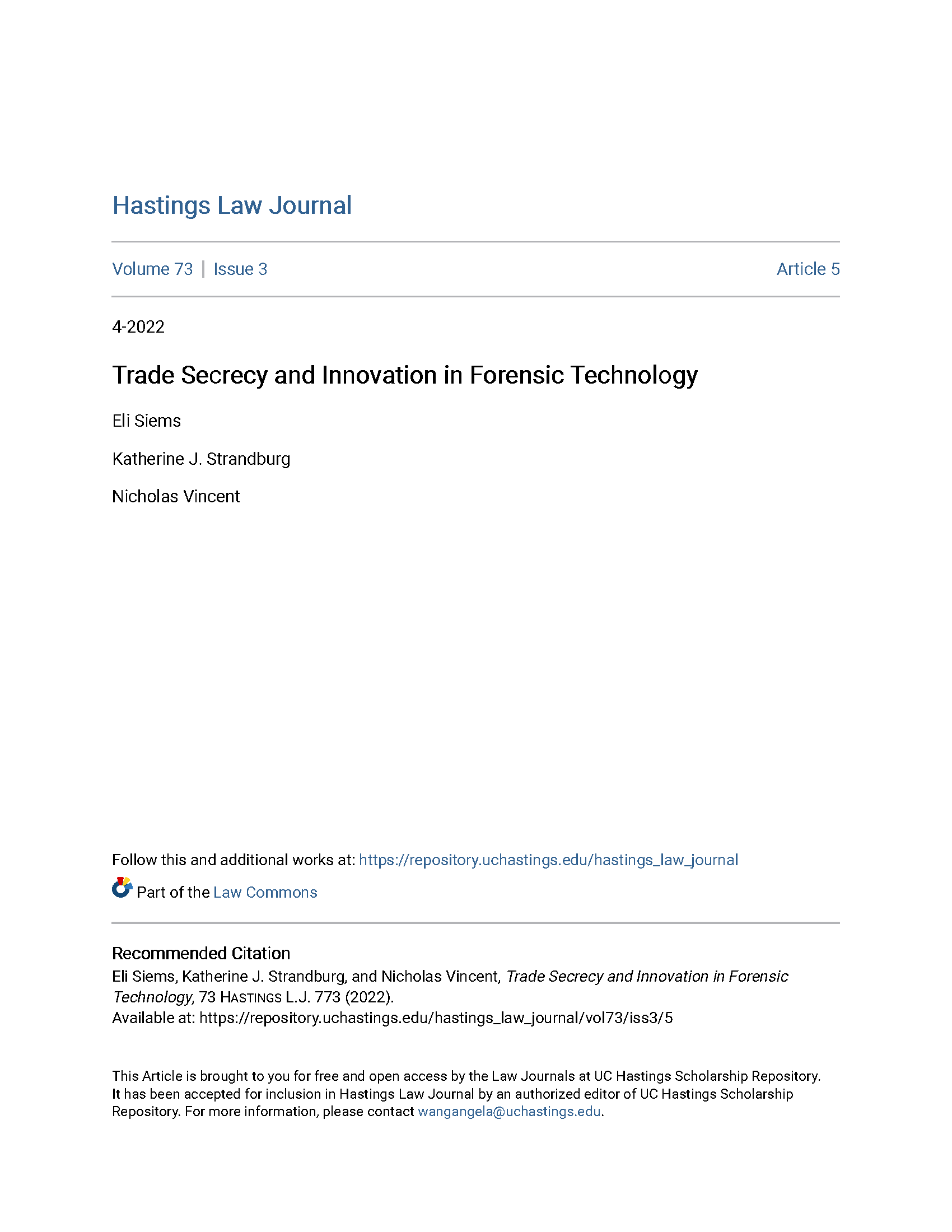Trade Secrecy and Innovation in Forensic Technology
Eli Siems, Katherine J. Strandburg, and Nicholas Vincent
Trade secrecy is a major barrier to public scrutiny of probabilistic software tools that are increasingly used at all stages of the criminal system, from policing and investigation through trial and sentencing. Such tools allow prosecutors to leverage imperfect forensic evidence, such as DNA mixtures, smudged fingerprints, and grainy video footage.

Probabilistic software tools unavoidably rely on potentially contestable assumptions, parameters, and implementation choices. Judicially recognized trade secrecy in criminal cases impedes scrutiny of these tools by defendants and the public. Previous critics have focused on secrecy’s potential to undermine the integrity and fairness of the criminal justice system, invoking the constitutional constraints of criminal procedure, as well as the traditional accuracy and fairness grounds of evidentiary rules. This Article takes a complementary perspective, arguing that trade secrecy against court- mandated disclosure is also unlikely to advance the recognized goals of trade secrecy law. There is thus certainly no basis for courts to assume that the social benefits of trade secrecy outweigh the potential for injustice created by withholding information needed for adversarial vetting of the reliability of forensic evidence tools.
